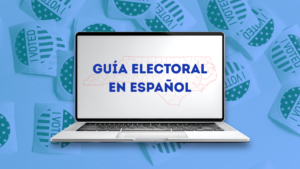Source: Education NC
North Carolina was ranked one of the worst states for K-12 public school funding, according to a new report from Education Law Center (ELC).
The report, titled Making the Grade, provides an annual overview of school finances in the states. The latest report gives a picture of states’ investment in their public school systems in the 2019-20 school year, along with the impact of the COVID-19 pandemic on the nation’s public schools.
“What we hope is that the report gives people the tools to speak plainly and clearly about any inequities and problems that exist in their state, so that people can use this to go to their state legislators to advocate for changes in their funding formulas,” stated Danielle Farrie, the Education Law Center’s research director, in an interview with The Daily Tar Heel.
Out of all 50 states and D.C., North Carolina was ranked 48th for funding level, with a cost-adjusted, per-pupil funding level of $10,791, which is $4,695 below the national average.
When it came to what ELC describes as “funding effort,” the amount of funding that goes toward public K-12 schools as a percentage of the state’s GDP, North Carolina held the lowest percentage in the country, with a 2.32 perfect of the GDP supporting public schools.
This report comes after state Republican legislative leaders have repeatedly decided to pass measly teacher pay increases and a recent state budget that failed to adequately invest in public education in accordance with the Leandro Comprehensive Remedial Plan.
“It is extremely unfortunate that we have a General Assembly who does not see the value in making sure that we are funding our public schools,” stated Tamika Walker Kelly, president of the North Carolina Association of Educators, in an interview with The Daily Tar Heel.
According to EdNC, funding Leandro would address long-standing issues plaguing public schools by providing funding for nurses, social workers and education resources, investments in high-quality early education (birth to age 5) programs, improve access to educational programs and services, particularly in communities where children are being left behind, and much more.
The court-approved Leandro plan is supported by both Democratic and Republican State Board of Education appointees, who are urging lawmakers to support the “full implementation” of the court-approved Leandro plan during 2023 budget deliberations.
Read the full report here.




